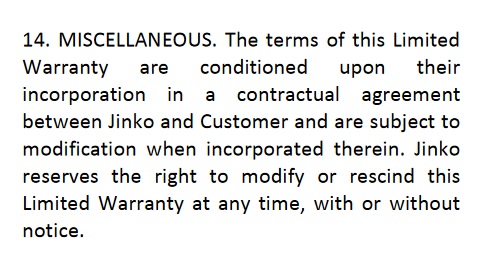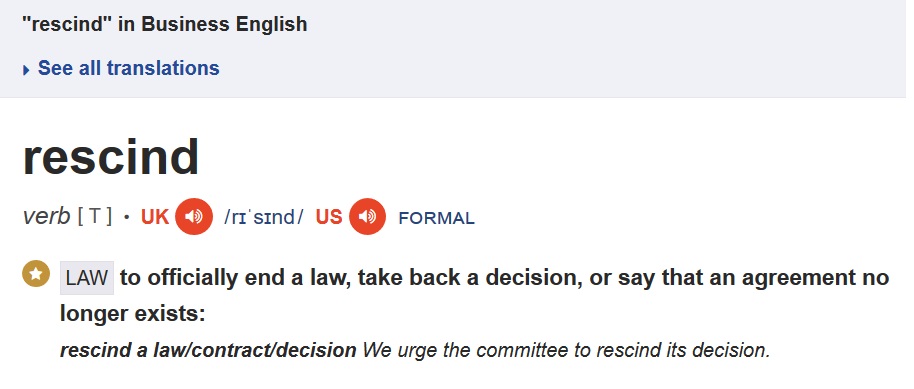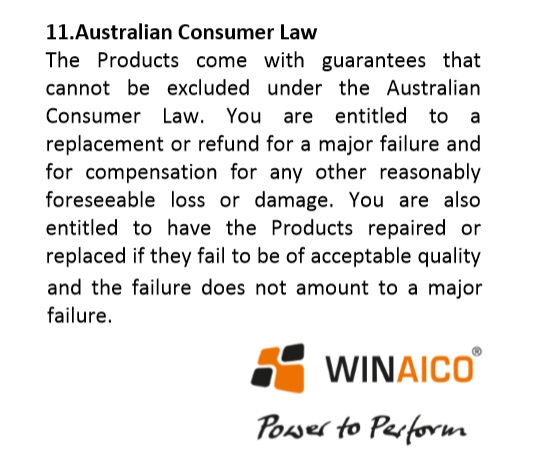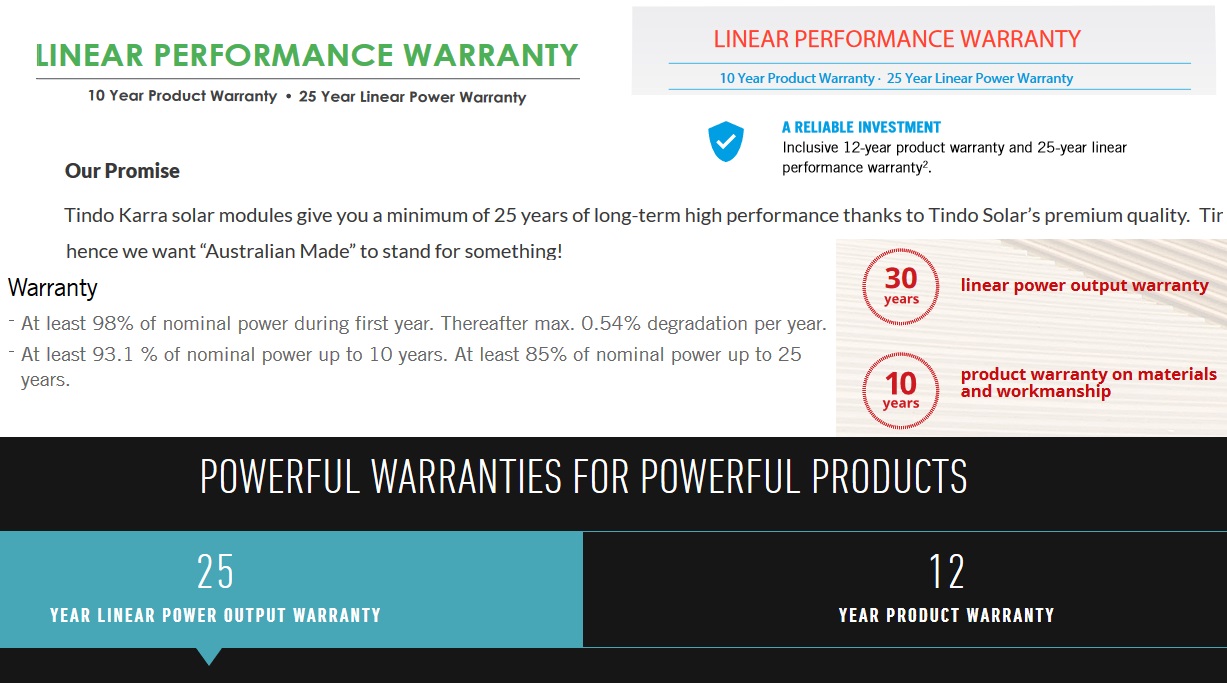
I’ve already written about how incredibly awful solar panel performance warranties are, but I’m writing about them again because they are so bad I could write for days on the topic and still have a big sack full of snide remarks left over. However, despite my massive sack, I have to admit that warranties are improving. And not just performance warranties, which are currently for 25 or 30 years, but also the more useful product warranties that are mostly for 10 years.
Before you get too excited I’ll explain that most performance warranties would have to improve a bloody long way before I’d call them good. Plenty are just as awful as they have ever been with ridiculous terms that make them about as useful as big nuns on a bull, but things are definitely improving. In the darkness there is a glimmer of light…
2 Ways Performance Warranties Suck
Last month I wrote this article where I pointed out two problems with performance warranties:
- Manufacturers think they only apply to solar panels that have deteriorated in performance but still work. If the panels have no performance, they believe they owe you nothing. It’s like having a roadside assist service that will only fix your car if you can drive it to their depot.
- According to the terms in most performance warranties, manufacturers believe they don’t have to give you a replacement or a refund for each panel that under performs. Instead they think a single replacement panel can make up for multiple inadequate ones.
You might be wondering how panel manufacturers can get away with this. Well, the good news is they can’t — provided they don’t pack up shop and abandon the Australian market. I’ve already written about how, according to my understanding of consumer law1, if a manufacturer says a solar panel has a 25 year performance warranty then they bloody well have to repair, replace, or provide suitable compensation for each individual panel that fails to meet its performance requirements whether its output is just below what’s required or it has no output at all. Because that’s what performance warranty means in English. The only exception would be if they made it damn clear the performance warranty only applies under certain, very limited, conditions. And they never do.
How Manufacturers Fail To Inform Customers About Performance Warranties
Here are examples of how manufacturers inform customers about their performance warranties. All are taken from manufacturers’ Australian web sites or from datasheets downloaded from those sites:
No reasonable person seeing this information is going to think if a solar panel completely stopped working after 15 years it wouldn’t be covered by the performance warranty. They also wouldn’t think that if they had three panels that were under performing they might only get one replacement panel to make up for it. There is no indication of how extremely limited most manufacturers intend their performance warranties to be.
Let me fix that for them. Instead of saying:
It should say:
Or for some performance warranties:
You might think that if people actually read solar panel warranty documents they’d realize how little the performance warranty is supposed to cover, but this often won’t help. Most are so unclear about their limitations you’d have to be both cynical and familiar with legalistic shenanigans to even begin to suspect how far many companies intend to go to weasel out of the promise they appear to be giving. Except perhaps for the few where they come right out and basically say, “We don’t have to do anything unless we feel like it.”
Performance Warranties May Be Arbitrarily Ended At Any Time…
If you bought a solar panel with a performance warranty of 25 years how long do you think the manufacturer would have to provide that performance warranty for?
(a) 50 years
(b) 25 years from the date of installation
(c) 25 years from the date of manufacture
(d) 0 years.
If you chose (d) you are a horrible cynical person. You are also correct. (It’s amazing how often those two things go together.) According to the terms of some performance warranties manufacturers can unilaterally rescind them any time they like. This may seem hard hard to believe, but check out what’s at the end of the Jinko Solar warranty I downloaded from their Australian site:

Image: Jinko Warranty
Just so there is no confusion, here’s what the Cambridge Dictionary says the word “rescind” means in business English:

Image: Cambridge Dictionary
Although I’m not a lawyer, as far as I can see, according to its terms, Jinko Solar — the world’s largest producer of solar panels — could at any time decide the warranty they gave you no longer applies.
…But Not In Australia
Fortunately they can’t get away with that kind of nonsense in Australia — or at least they can’t if people are aware of the protections they have thanks to Australia’s Consumer Guarantees. Here is the ACCC2 page on them. You are protected by Consumer Guarantees no matter what the terms of your written warranty. So if you have a problem the written warranty states it doesn’t cover, or even if the written warranty period has ended, it is still possible you can recover your costs from the manufacturer.
Manufacturers Must Keep Any And All Promises They Make
One consumer guarantee states that products must…
“…meet any extra promises made about performance, condition and quality, such as life time guarantees and money back offers”
When a reasonable person sees a manufacturer has given their solar panel a 25 year performance warranty they will consider it to be a promise that if a panel stops working entirely the manufacturer will repair or replace the panel or provide reasonable compensation. Personally, I am certain that if brought before a small claims court or a consumer tribunal this would be their opinion too3. No one is likely to see the words “25 year performance warranty” and think that it doesn’t apply to panels that completely stop working or that one replacement solar panel is fair compensation for three panels that fail to meet the minimum performance level.
Consequential Loses And The Cost Of Installing Replacement Panels
Solar panel performance warranties typically state the manufacturer has no responsibility for the cost of installing any replacement panels they may give you. However, under Australian Consumer Guarantees you can claim for compensation for damage and loss. You can seek compensation from either the installer or the manufacturer. You can be entitled to either a repair, replacement, or refund from the installer while you are only entitled to costs from manufacturer. According to the ACCC:
“You can seek compensation for damages and losses you suffer due to a problem with a product or service if the supplier could have reasonably foreseen the problem. This is in addition to your repair, replacement or refund rights.”
If you receive replacement solar panels it is blatantly obvious they will need to be installed and the homeowner can’t do that themselves. The job requires an accredited solar installer and last time I checked they don’t work for free. Not even if you ask really nicely. So needing to pay for the cost of installation is definitely foreseeable. This applies even if you are given a refund rather than replacement panels.
Solar Panel Warranties Are Improving
The good news is solar panel warranties are improving. An increasing number now include a statement on Australian Consumer Guarantees4 such as this one from Winaico’s Australian warranty:

Image: Winaico
Now isn’t that better? And as far as these things go, Winaico’s warranty is a good one. They even state they will pay — up to a limit — for installation costs for replacement panels. (I knew there was a reason why I love Taiwan.) But Winaico is not the only one. Other manufacturers are now clearly stating they will pay for the installation costs of replacement solar panels. This should eventually become the norm in Australia mainly thanks to the efforts of the Clean Energy Council, which has been working on this behind the scenes5 They have inspired me to dedicate 6 minutes every second Tuesday to shaming those that are behind the eight ball coughJinkocough into improving their warranty small print.
Footnotes
- Note: I am not a lawyer. I am also no longer permitted to claim that being married to one caused magic lawyer powers to rub off on me. ↩
- Yes, those bastards. ↩
- But note I still haven’t managed to become a lawyer since two footnotes ago. ↩
- In fact under ACL all Australian warranties must include these words. ↩
- Or possibly in front of the scenes. It would depend upon where you happened to be standing at the time. ↩





 RSS - Posts
RSS - Posts



Thanks Ron.
Ron you like most of us went to school and learned the English language and comprehension sufficient to get by in every day life together, and although not perfect it does prevail in normal circumstances.
However once you start to move beyond the normal and simple discourse into the realms of legal jargon well that’s another track entirely where the principles of “simple and concise and plain-speak” English language interpretation no longer applies. And we are all aware of this point including you.
Can I make a suggestion please Ron? The thrust of your article is important and meaningful to everybody involved with the PV industry. So important in fact that your article needs a supplementary expert opinion from a legal practitioner specializing in these matters, and even more relevant would be from a legal expert specializing in renewable energy generation commercial matters law.
Because normally, that’s precisely what we all do when we need clarity on complex legal matters we find ourselves involved in, which is exactly the category that commercial PV warranties are in.
Thanks for a great article; written about in most forums many times but definitely in need of an expert legal analysis.
Lawrence Coomber
Interesting – I have two cases at the moment.
1. Complete panel failure under 5 years. Manufacturer replaced the panels. not in a timely manner to suit the customer. Manufacturer offered compensation by extension of the warranty period. Customer declined.
After the customer went to legal aid, ACCC, QPAT, I am now going to a mediation meeting. Customer want me to compensate him for consequential losses as i sold the system. $1200 ACCC advised him we were not responsible for consequential losses. He just goes to the next level.
2. 8 panels fail at 7 years. Manufacturer closed. Importer retired on gold coast. Supplier – not our problem.
We replaced the panels at our cost. Legal advice was it is my responsibility to honour the warranty if the manufacturer cannot.
The problem here is opinions and maybe, nothing hard and legal.
30 year warranties means that for 30 years after i sell my last system I need to have a system in place to process warranties.
CONFUSED and frustrated. Legal advice from NECA – Legal – “cannot believe anyone offers a 25yr warranty” “like Infinity cable, manufacturer went bust so it is now Bunnings problem”
Love to hear from others, surely i am not the first in this situation.
Yes,that sure did cause hedaches everywhere ! With ‘ infinity ‘ as with, so many solar installers are NO WHERE TO BE FOUND either !!! So, i am stuck trying to sort out a MASSIVE PILE OF ??? done by fly-by-nighters ( as i call them, now.. ) easier to shutdown or declare bunk rupture and problem solved or even a simple name change does it, as well ? “ There are ARSEHOLES to be found everywhere, in all sectors of life … be warned and trust fruck all, ya do not know ! Is about it… sadly but very true “
A 25 year performance warranty, even one which was technically very good is not worth very much at all as it gets older.
People who think they are going to get a new panel for free after 20 years are delusional on two counts:
1. The installer who is 40 now will be retired, have moved house 3 times, the last time interstate, and have liquidated his company or sold it to a homeless person and so there will be no installer to honour the waranty
2 The manufacturer will have abandoned the Australian market, gone out of buisiness, been taken over and asset stripped or just liquidated.
At best you might get a replacement panel warranty, underperforming panel for new panel (parts only) for 5 years and a proportional warranty after the 5 years. If the panel has performed for only 5 years then you get 80% off the cost of the replacement panel, if it performed for 10 years you get 60% off, it it performed for 15 years you get 40% off, if it performed for 20 years you get 20% off.
And even then, the chances of getting it are probably 5 years 80%, 10 years 50%, 15 years 20%, 20 years and longer – 5% for all the reasons outlined above
Choose a manufacturer or supplier who will be around for the long run.
Keep your reciept.
Be prepared for a fight. If you will be retired in 20 years you might enjoy going to every possible government body and writing to the newspapers etc. The supplier will find it cheaper to pay you out than to pay employees to attend the same meetings as you can.
Your big problem might be to prove the panels are actually faulty so make sure you have a procedure to measure the performance and keep records.
In a recent case I lost $7000 because no expert in the industry would even give me a written statement that the goods were faulty because they knew they would suffer retribution from the manufacturer. They all agreed that the supplier had failed to supply goods that were not fit for purpose but apologised for not wanting to be crushed by their supplier.
Solar equipment warranted for more then 20 or 25 years are to be club with insurance foe safe guard of both parties
V B Thaker
The performance warranties really only seen good for around 10 years only. At that stage the promised performance is only about 15-30%
So barring complete failure Junko will probably just flip you $40 for each defective panel and be done.
Hi Peter
Can you provide information showing panel performance is so poor after 10 years. That is serious deterioration and by this time I would expect to be well aware of it if it was common. If you can also provide information about Jinko Solar’s behaviour too that would be helpful. If this happened to you personally how did Jinko respond to your panel’s poor performance?
Ronald,
The gentleman is speculating about a hypothetical future case and not something that has happened.
The promised performance under most linear warranties from the vast majority of manufacturers is 90% at 12 years, however, sometimes this is worded as 10% degradation.
Although some manufacturers that have exited the industry (such as BP Solar) have provided cash settlements, valid warranty claims to date at Jinko have been settled by replacement in all cases.
Thanks for that reply.
My valid warranty claim only partially, less than 50% offer of replacement offered. JINKO DOES NOT FIX ALL WARRANTY CLAIMS.
Nearly 1 year now from when I first made a claim.
Appalling customer service.
Now jinko isn’t communicating at all.
Very disappointing.
Information showed a reputable organisation.
Absolute lie. Not helpful at all.
Warranty still unresolved.
With respect to some points as detailed above, the distributors of Jinko Solar panels are provided with a copy of the Australian warranty for Jinko Solar products.
This warranty contains the detail of Australian consumer law as mentioned above.
Under Australian law, the warranty that applies at time of sale would continue to apply regardless of future changes to the warranty on offer for general sales at a later date.
Many warranties contain information warning of the possibility of future changes to the warranty, the intention being not to change the terms of existing situations (completed sales), but rather to encourage people obtaining the warranty information from a general enquiry (perhaps from a google search) to confirm with their retailer which edition is the current version when entering into a purchase.
Jinko supports efforts to improve information around warranties.
I had a new solar system installed in 2014. Sunnyboy SMA inverter with 21, 250watt poly-crystalline panels made by jinko. My panels have failed miserably, and I have myself paid for them to be tested.
No inverter or installation issues. Results showed performance degradation along with snail trails and micro cracking on all panels. Results sent to jinko.
I have results in writing of all tests conducted and test results are appalling. Jinkos own documentation showing Linear performance warranty of around 95% after 5 years.
My system has a loss of about 70% + power production from when it was first installed until my warranty claim. I first started my claim in November 2019 through my installer. Jinkos offers have been unacceptable on all levels.
The best offer so far is 10, 330watt panel replacements and $600.00 for installation. I have already paid over $450.00 for testing, so $600.00 doesn’t cover it. Plus jinko will not even SELL me extra panels at better price to replace the full 21 panels. Jinko does not want to help at all.
I have asked for a refund in dollars, as I really don’t want to deal with jinko ever again. They offered me $1050.00 for 21 panels that initially cost me much much more.
The cost for jinko to replace 21 panels would be minimal when mass produced.
Jinko has now totally stopped communications with the installer.
The whole thing has been a horrible experience.
While searching for my rights, I found this website.
After reading comments I seen Thomas Bywater.
You Thomas, are one of jinko solar representatives my installer is dealing with.
I have your email correspondence with them.
HONOUR YOUR WARRANTY
repair, replace, or provide suitable compensation for each individual panel that fails to meet its performance requirements. I I would say that the micro inverter attached to the panel is included into that compensation.
I’m confused. Recently read a panel warranty in detail, and came upon a statement that the warranty does not cover “normal wear and tear, to the natural effects of weather…”. If the panel falls apart or suffers performance failure because of exposure to sunlight, or rain, the manufacturer can claim it is not covered by the warrenty?
I’m afraid it is quite possible for a panel warranty to be worded in such a way that they could claim falling apart due to normal weather is not covered by it. Fortunately, they can’t get away with that under Australian law — provided people are aware of their consumer guarantees and don’t let them get away with it. Generally though, that sort of phrase just refers to cosmetic deterioration that doesn’t affect the performance of the panel.
Correct Ron.
“Normal wear and tear” or “fair wear and tear” are common terms and apply to cosmetic features and also items that understandably wear out with age as a natural consequence of time and exposure to the elements.
We use this term in our own energy product warranties and it often focused on plastics and polymers (silicon and polyurethane sealant for example) and PVC cable outer insulation, which are good examples of “fair wear and tear” materials that eventually suffer embrittlement and lose their original performance standard over time exposed to UV and other environmental factors.
The number of contributions to your excellent article Ron supports my view that an expert opinion from a renewable energy products/systems legal practitioner would go a long way to enlighten the industry as a whole on this subject.
Lawrence Coomber
Hi,
Very interesting discussion, but nobody explains how do you practically measure the panels output, say every year.
As fast as I know this must be done in identical conditions, which is impossible since the sun shines differently every day?
Is it possible to average the panels output per each year and compare?
Thanh you.
Looking at the average output per year is a way to keep track of a system’s output. Ideally this would be adjusted for how sunny it had been that year.
Alex:
What you have asked about module testing is very easily undertaken by a solar licenced electrician.
Your panels have a manufacturers IV curve as part of the module specification and it is this IV curve that all performance tests are based on.
It is not particularly relevant what the value of solar irradiation is at the time of testing a ‘string’ of modules (or a single module) as long as you measure that irradiance at the time of the test. The key metric here is that PV module power output (Wp) is effectively ratio-metric to solar irradiation (W/m2).
The test to be conducted on the string or module is an Isc test. Very simple and reliable to set up on a string and perform.
There are various devices available for measuring solar irradiation (W/m2) but the most reliable and precise method in the hands of a skilled solar guy is by using a solar module (a new one used by installing companies to easily undertake these sort of module performance tests) oriented in the identical plane (inclination and azimuth) to the PV string (or module) under test, and an Isc (short circuit current) is done to obtain the short circuit current at the exact time of testing the string or module (also an Isc test).
Everything you need to know with high precision can then be easily calculated in an Excel report from these simple snapshot test results, related back to both the module under test IV curve, and the comparator test module IV curve.
Talk with your solar electrician on this one Alex. It is a quick and accurate test enabling a high precision authoritative report in Excel, to be generated and evaluated.
Lawrence Coomber